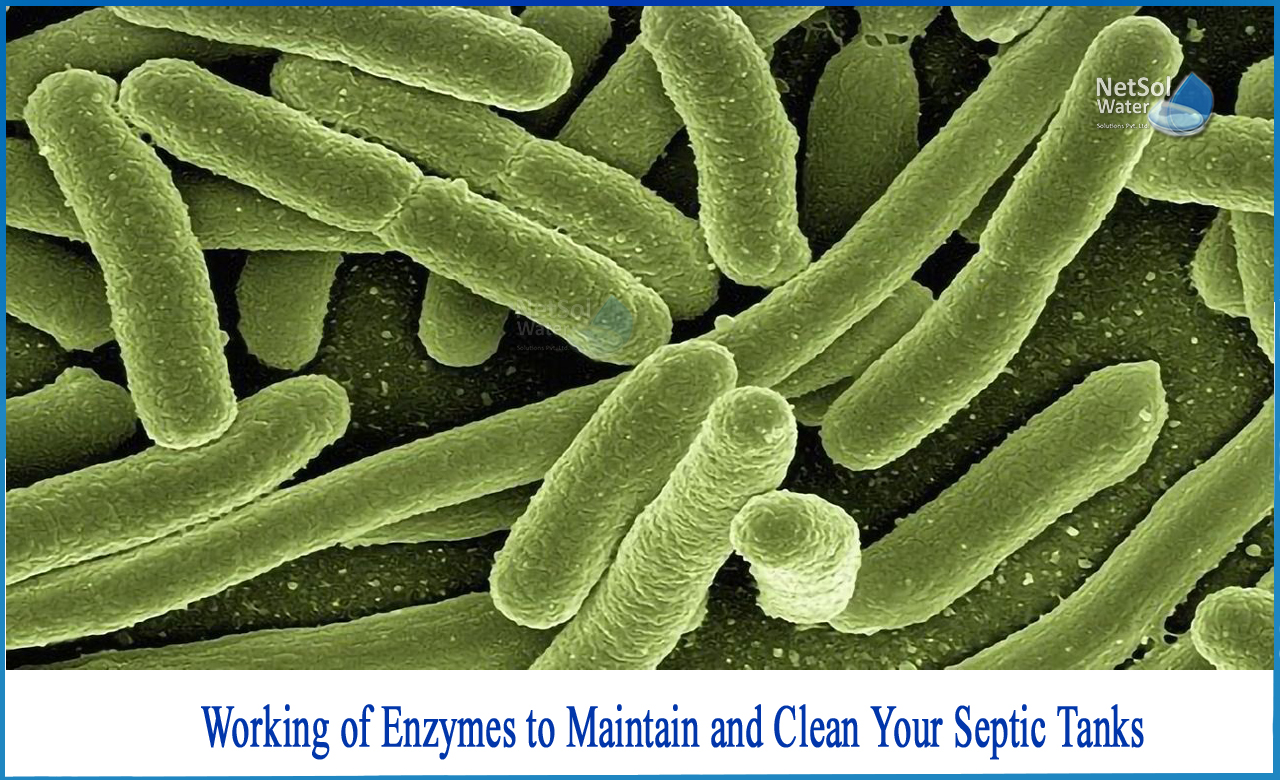Introduction
The septic tank, which is usually located beneath the earth, is used to collect residential waste. Food particles, oil, grease, and fat get flushed down the drain and end up in the septic tank. Human waste, toilet water, and chemical cleansers are all flushed down the drain.
The septic tank waste is handled in two stages. Bacteria attack and breakdown organic waste vigorously in the first phase. Solid waste in the form of undigested organic debris, dirt, and plastic fragments settles to the bottom and creates sludge since it can no longer be broken down at the same pace. The second step involves the discharge of liquid waste or effluent into the drain field.
What is the Role of Enzymes in septic tank?
Tons of natural bacteria are found in the septic tank system, where they degrade solid waste. Enzymes are a type of protein or amino acid that bacteria produce and use to break down organic stuff into simpler nutrients.
The enzymes operate as a catalyst, speeding up the waste breakdown process. In layman's terms, enzymes connect to waste molecules and break them down into nutrients that bacteria consume.
There are several types of enzymes made by bacteria and found in the septic system. Protease, Lipase, Amylase, Cellulase, Urease, and Xylanase are among the enzymes found in it.These enzymes aid in the breakdown of waste such as faeces, fats, oil, grease, starch, urea, and other substances. Enzymes play an important part in the breakdown of organic waste in this way.
What effect does this have on the enzyme's function?
Septic tanks operate successfully when naturally occurring bacteria secreting enzymes do their purpose and aid in waste breakdown. However, bacteria and enzymes are affected by a variety of variables.
Chemicals used extensively in the home penetrate the septic tank system and impact the activity of bacteria and enzymes. Beneficial bacteria are destroyed by the usage of numerous goods such as bleach, oil, detergents, chemical soaps, paint, acid and solvent based cleansers, and so on.As a result of the untreated solid waste, the system is put under more strain, resulting in an excessive sludge build-up. As a result, backups form and your septic tank overflows, bringing you problems and inconvenience.
Bacteria and enzymes in the septic tank system are sensitive to pH levels.
Toxic compounds disrupt the pH, and other parameters such as temperature and space influence enzyme function. As a result, septic tanks collapse.
Chemicals are frequently used to degrease septic tank system components. To unclog clogged drains, drain cleaners containing inorganic compounds (acids or alkalis) are utilized. These destroy beneficial microorganisms and may also damage tanks.
A faulty septic tank may be quite inconvenient for ordinary houses. Garbage leakage, the release of bad odours, and pests and insects drawn to the waste can all pose a health risk. While there are mechanical methods for pumping out septic tank waste, they are costly and do not provide a long-term solution.There are natural, eco-friendly, and effective septic tank cleansers in the market that may assist in the maintenance and improvement of septic tank systems with no effort.
Netsol Water is Greater Noida-based leading water & wastewater treatment plant manufacturer. We are industry's most demanding company based on client review and work quality. We are known as best commercial RO plant manufacturers, industrial RO plant manufacturer, sewage treatment plant manufacturer, Water Softener Plant Manufacturers and effluent treatment plant manufacturers. Apart from this 24x7 customer support is our USP. Call on +91-9650608473, or write us at enquiry@netsolwater.com for any support, inquiry or product-purchase related query.



